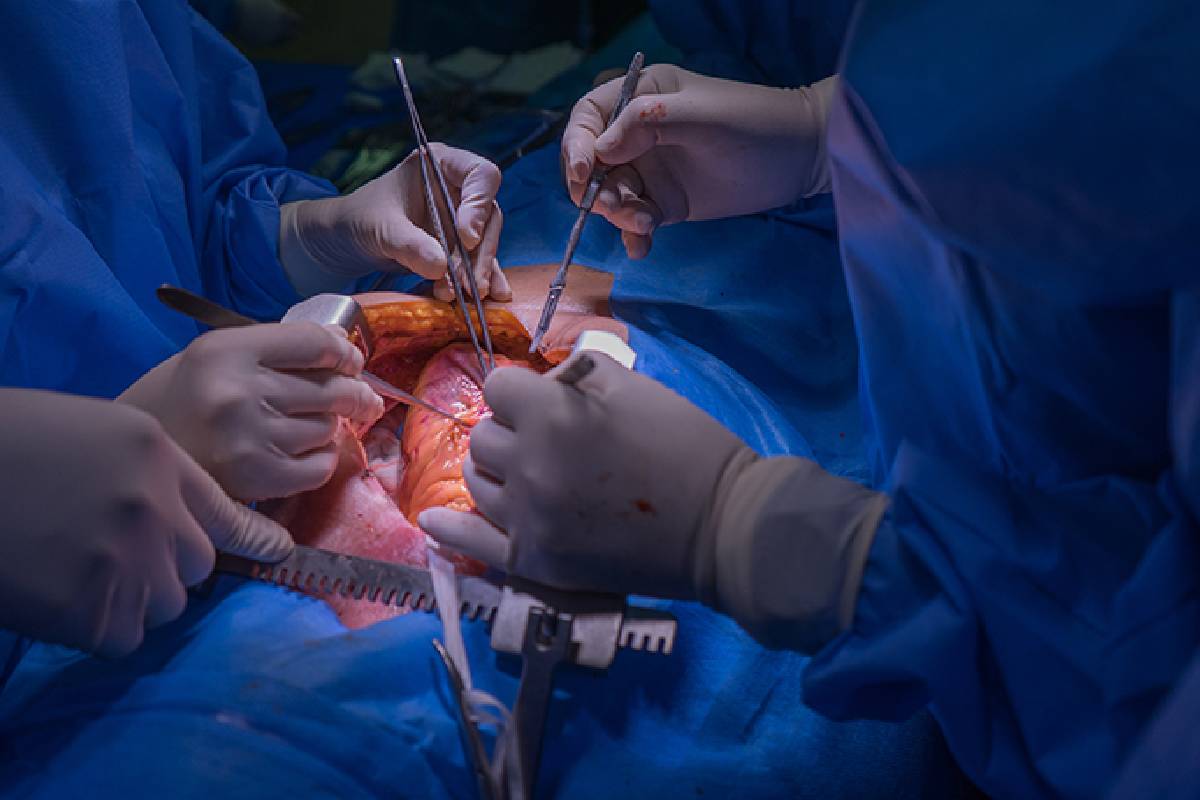
Heart Transplant Surgery in Delhi
Heart Transplant Surgery in Delhi for replacement of a diseased heart.
A heart transplant is recommended for a patient with a failing heart and mostly when the patient’s diseased heart can not be helped by advanced heart failure medications. The patient’s diseased heart is replaced by a healthier, often younger donor heart. Heart transplant is a major operation but patient survival is very good provided regular medications and follow-up can be assured. Talking about the cost of open heart surgery in Delhi, it is quite economical, so everyone can avail of the benefits.
Why is a Heart Transplant Done?
A heart transplant is performed when other heart-related treatments fail to work properly, resulting in heart failure. The following factors can cause heart failure:
- Weak muscles in the heart
- Coronary Artery Disease
- Heart Valve Disease
- Congenital Heart Diseases
- Uncontrollable heart arrhythmias.
- A failed previous heart transplant
We perform heart transplant surgery in Delhi when the patient’s own diseased heart cannot maintain adequate body functions.
Concerns Leading To Heart Failure Surgery in Delhi
- Weakness of heart muscle called Cardiomyopathy or Dilated Cardiomyopathy (DCM/ DCMP)
- Coronary Artery Disease (mostly after multiple heart attacks the heart becomes too weak to support function)
- Heart Valve Disease (many patients come to seek treatment only in the terminal stages of heart valve disease)
- Others like dangerous arrhythmia, HOCM, congenital heart disease, or a previous heart transplant
These are some of the causes that necessitate the need for heart failure surgery. Our doctor consults many patients looking for heart failure surgery in Delhi. If you are also facing the same issues, consult the heart surgeon.
Dr. Sujay Shad performs heart transplant surgery in Delhi after completely understanding the condition and medical history of his patient. As a standard, we take a few days to assess a heart failure patient. We check medical records, treatments undertaken, other medical/surgical conditions that might forbid transplantation (like advanced age, cancer, active infections, serious kidney or liver failure, alcohol abuser unwilling to stop alcohol) and we also undertake a full biochemical screening to try and identify potentially treatable causes for heart failure. Once it is clear that a patient will improve only by a heart transplant, the patient is placed on an active transplant waitlist for allocation of a donor organ – says Dr. Sujay Shad, a Heart Transplant Doctor in Delhi.
The past few years have seen rapid progress in the medical management of heart failure, which has gone hand in hand with advances in device treatments of heart failure. Modern ventricular assist devices are handy, durable, and more or less trouble-free. However, their costs remain prohibitive. Heart transplant surgery or open heart transplant surgery in Delhi done by Dr. Shad provides a durable result at a fraction of the cost and an unsurpassable quality of life.
Procedure for Heart Transplant Surgery in Delhi By Dr. Sujay Shad
The heart transplant doctor will perform the surgery as soon as a donor’s heart is available to the recipient. A heart transplant must be performed within four hours following organ removal from the donor’s body. When the recipient is notified, they must quickly arrange for heart transplant surgery.
Getting a heart transplant surgery in Delhi is a lengthy and complex process that is divided into several stages. Long before the procedure, the first preparation and screening are completed. The doctor uses a staff of some of the most dedicated specialists who specialize in heart transplant surgery.
What to Expect During Heart Transplant Surgery?
A heart transplant is a lengthy and crucial procedure that can last up to six hours. If the patient has already had heart surgery or has a history of problems, the surgery time may be extended.
After the chest is opened, the patient is attached to a heart-lung machine, which keeps oxygen-rich blood circulating throughout the body.
Once blood flows through the heart-lung system, the recipient’s heart is removed, and the donor’s heart stitched within the body. When blood flow is restored, the new heart typically begins to function immediately. In circumstances where it does not, an electric shock is used to restart the replaced heart.The patient is kept on a ventilator and administered medications until the situation is stabilized.
Cardiac transplantation was initiated half a century ago. Most early failures came from rejection, a process by which the patient’s body identifies a new heart as foreign and launches an immune battle to kill it. New immune treatments have led to immense improvement in early and late post-transplant survival.
Organs are now allocated by NOTTO the national organ and tissue transplantation organisation as per a waitlist kept by the central and state offices.
You can also contact Dr. Sujay Shad to know about Heart Failure Surgery in Delhi.


